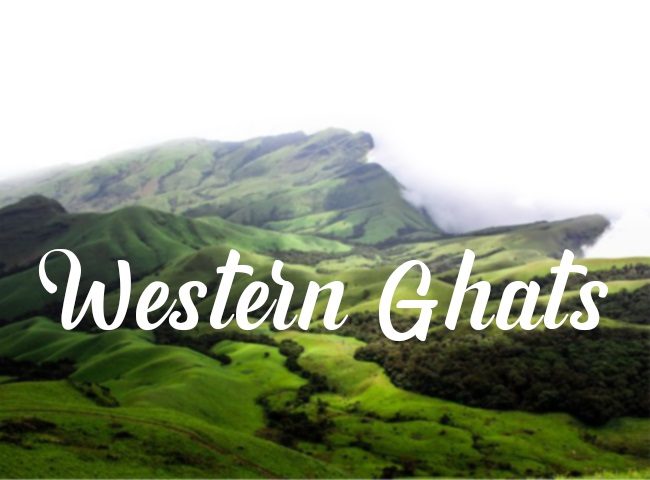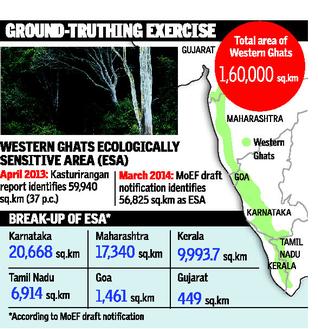Description

- Copyright infringement is not intended
Context:
- Karnataka Chief Minister informed the Centre that the state is opposed to the Kasturirangan Committee report on Western Ghats.
- He said that declaring Western Ghats as ecologically sensitive zone would adversely affect the livelihood of people in the region.
What are the recommendations of the Kasturirangan committee report?
- It proposes 37 per cent of the total area of Western Ghats, which is roughly 60,000 square kilometres, to be declared as eco-sensitive area (ESA).
- It recommended a blanket ban on mining, quarrying, setting up of red category industries and thermal power projects.
- It also stated that the impact of infrastructural projects on the forest and wildlife should be studied before permission is given for these activities.
- It also stated that the UNESCO Heritage tag is an opportunity to build global and domestic recognition of the enormous natural wealth that exists in the Western Ghats.
- The 39 sites are located across the Western Ghats and distributed across the states (Kerala 19), Karnataka (10), Tamil Nadu (6) and Maharashtra (4).
- The boundary of the sites, are in most cases, boundaries of the legally demarcated national parks, wildlife sanctuaries, tiger reserves and forest divisions and therefore, already accorded with high level of protection.
- The Eco-Sensitive Area mapping and demarcation done by the committee also indicates that all sites are within this area.
- The state governments should view this development and build a plan to protect, conserve and value the resources and opportunities of the region. The state of Karnataka has the highest percentage of the ESA- 46.50 per cent.
Ecologically sensitive area of the Western Ghats provided by Kasturirangan committee report

Why have the successive governments in Karnataka rejected the report?
- The state government believes that implementation of the report will halt the developmental activities in the region.
- The Kasturirangan report has been prepared based on the satellite images, but the ground reality is different. People of the region have adopted agriculture and horticultural activities in an eco-friendly manner.
- Priority has been accorded for environment protection under the Forest Protection Act.
- In Karnataka itself, 600-plus villages fall under the eco-sensitive area if the report is implemented.
Why implementation of the report is suggested?
- Considering the changes in climate (evident from recurring floods, droughts, landslides, increasing temperature, etc), which would affect the livelihood of all people (irrespective of poor or rich) and hurt the nation’s economy, it is prudent to conserve the fragile ecosystems that costs less compared to the situation prone to calamities (with changes in the climate) than spending money /resources for restoration / rejuvenation.”
What is the present status of the deemed forest land in Karnataka?
- There is a growing concern over the forest encroachments in Karnataka, the state government has planned to further shrink the deemed forest area from 3,30,186.938 hectares to 2 lakh hectares.
- There have been massive encroachments across the state forest areas and these have been done at the behest of political leaders.
https://indianexpress.com/article/explained/explained-implementation-recommendations-kasturirangan-committee-western-ghats-important-7660924/






